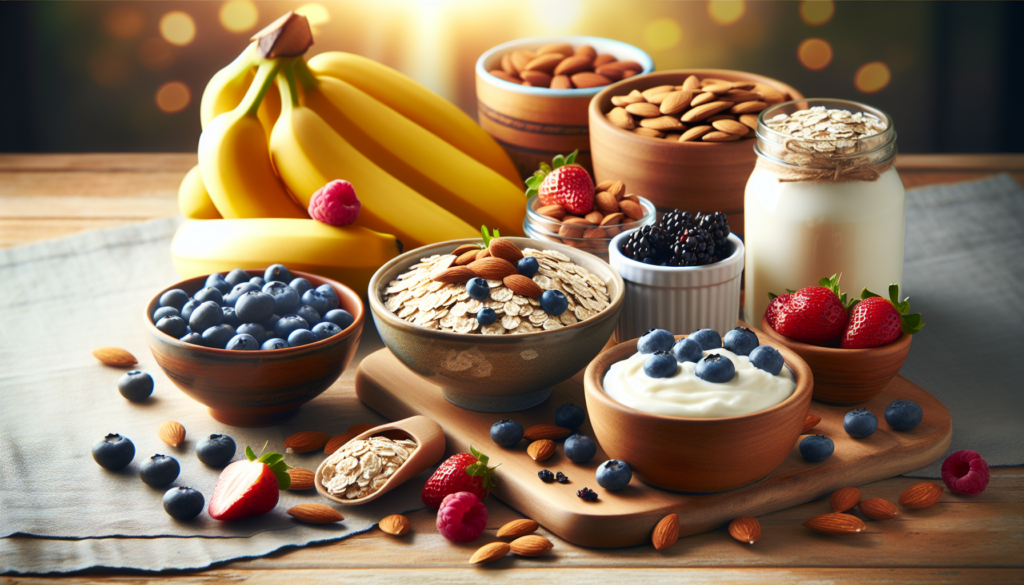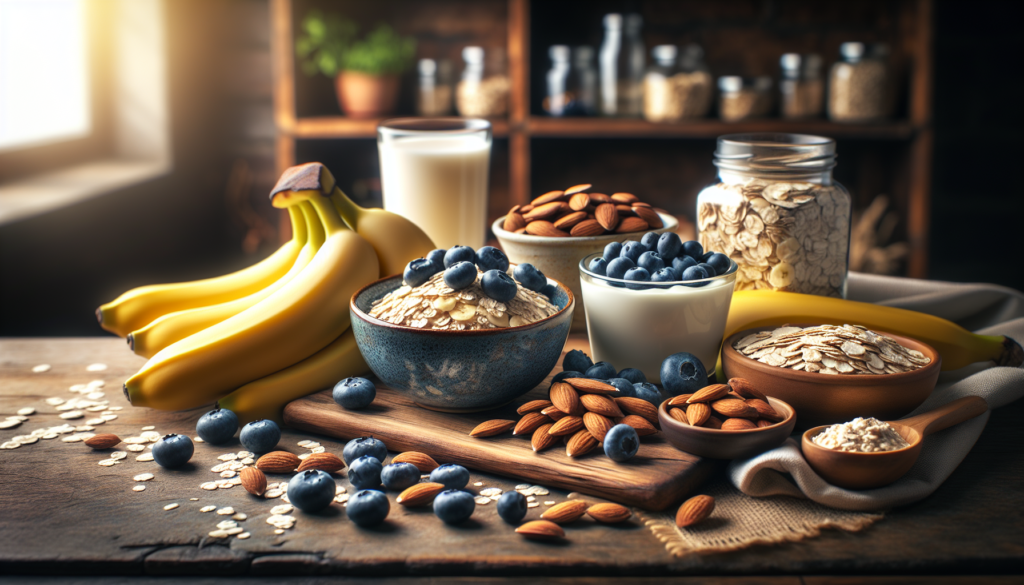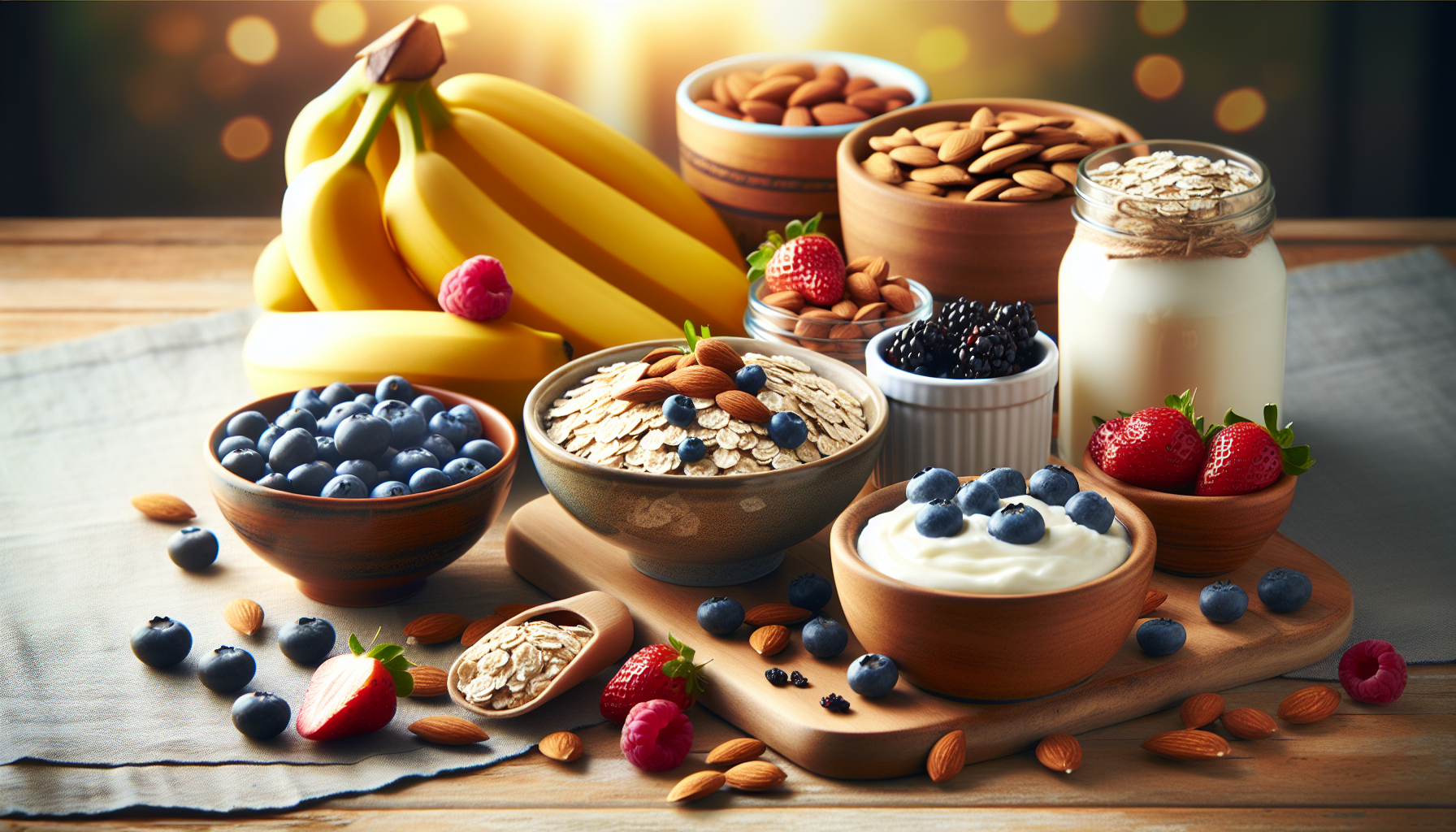Is your pre-workout snack game as chaotic as your sock drawer? Fear not, chums! We’re here to unravel the enigma of pre-exercise munching mishaps, because let’s face it, a gas station burrito or a handful of gummy bears isn’t exactly fueling you with the precision of a well-oiled machine. If you’ve ever found yourself at the gym wondering whether that third cup of coffee counts as carbo-loading, this guide is tailored just for you. Put on your metaphorical apron because we’re about to shake and bake some knowledge into your routine.

Why Is Pre-Workout Nutrition Important?
Almost as important as remembering your gym shoes—nutrition plays a vital role in determining whether you’ll power through your workout or flop around like a Kardashian on a camping trip. What you eat before you channel your inner fitness guru greatly impacts your energy levels, workout performance, and recovery capabilities. Essentially, your body is asking for a bit of TLC before you subject it to the torment of planks and burpees. Think of pre-workout nutrition as giving your body a pep talk—only instead of words, you’re using oats and peanut butter.
The Science Behind It
Your body is essentially a complicated picnic basket of physiological mechanisms, and before any workout, it needs fuel. This isn’t so different from a car needing gas before a road trip. Pre-workout foods provide the glucose required for sustained energy and help avert muscle breakdown during exercise. If you neglect this, your body might retaliate by burning through your precious muscle tissue instead. And nobody wants that. Not even Mondays want that.
Timing Your Pre-Workout Meal
While you’d think shoveling down a mountain of pasta five minutes before a kettlebell class would be a stroke of genius, timing is everything. It’s vital to consume your pre-workout meal 30 minutes to 3 hours before exercising. This window allows your body ample time to properly digest food, preventing those rather uncomfortable burpee burps that feel akin to repeated volcanic eruptions. A snack 30–60 minutes before you break a sweat should be lighter—consider it a light romantic comedy before moving onto the high-octane thriller that is your workout.
Macronutrients: The Trio Supreme
Before moving directly into the optimal nosh list, any decent guru would explain the holy trinity of macronutrients. Much like the three bears in a Goldilocks tale, getting the proportions just right can be crucial.
Carbohydrates: Your New Best Friend
Carbohydrates are like the extroverted pal that everyone needs—you cannot function without them. They furnish your muscles with glycogen reserves, the go-to source of energy during physical activities. An ample supply of glycogen reduces fatigue and enhances performance, giving you that Hercules-like strength, minus the toga. Ideal carbohydrate options include bananas, oatmeal, rice cakes, and high-fiber cereals. Think of carbs as the loyal sidekick holding your cape as you go for that heroic run.
Proteins: The Repair Crew
Imagine having tiny mechanics in your body on standby, ready to repair, recharge, and basically spruce up your muscles. That’s protein for you—your body’s unsung hero. Consuming protein before working out can aid in repairing any wear and tear that occurs during exercise. It’s akin to having insurance, only without the tedious paperwork. Lean meats, eggs, and yogurt are excellent choices. Consider them a gift to your muscles, a little heads-up before you abandon them to the whims of your workout.
Fats: The Tango Partner
Fats may not be the dazzling lead in the carbohydrate-protein-fat trio, but they waltz gracefully in when you plan on lengthy endurance sessions. Opt for healthy fats like avocados, nuts, or a sneaky spoonful of almond butter. Just remember, don’t overdo it—consuming too much fat can make you feel sluggish, and no one wants to run a mile feeling like Jabba the Hutt. Fats aim to provide steady energy and keep your hunger in check.
The Top 10 Pre-Workout Foods
Fasten your seatbelt (or gym strap), as we now embark on an odyssey through the culinary universe to identify the top pre-workout foods guaranteed to make your body a temple—or at the very least, a well-fortified shed.
1. Bananas
Known affectionately as ‘nature’s PowerBar’, bananas are packed with digestible carbohydrates and loads of potassium, which helps maintain nerve and muscle function. Plus, they’re convenient. No one ever looked cool peeling a banana like a car mechanic, but trust us, that nifty yellow skin is your pre-workout lifesaver.
2. Oatmeal
If you’re in for a long sweat session, consider oatmeal your cozy, edible blanket. It’s a slow-digesting carb, meaning it feeds you a steady stream of energy, unlike those sugary cereals that abandon you mid-spin class. Pair it with some honey or fruit, and you’ve basically become a breakfast wizard.
3. Greek Yogurt with Berries
Eat like the Greek gods! Greek yogurt is loaded with protein, and adding berries gives you that extra antioxidant punch. This snack plays well with a supporting cast of granola or even a drizzle of honey. Yell “OPA!” for good measure—maybe not during your Zumba class, though.
4. Whole Grain Bread with Peanut Butter
Whole grain bread with a dollop of peanut butter? It’s a pre-workout sister act as iconic as Peaches & Herb. This combo offers a healthy dose of carbs and protein—plus, let’s be honest, who doesn’t love licking the artisanal nut butter from their fingers?
5. Eggs
Boiled, scrambled, or turned into a fancy omelet, eggs are versatile protein powerhouses. They’re easy to prepare and provide the necessary amino acids for muscle repair. Although, science has yet to identify the reason why the ‘egg white and yolk jingle’ is inevitably stuck in your head post-consumption.
6. Smoothies
Sometimes, you just want to savor your nutrients through a straw. Blend your favorite fruits with some choicest yogurt or protein powder, and you’ll sip on a liquid elixir of energy. Plus, Instagram allows you to boast about your smoothie-making prowess to your unsusceptible audience.
7. Chicken and Rice
For meals a little more robust, chicken and rice is a reliable go-to. It provides that balanced energy release without lulling you into a food coma. Just ensure you’re not boring your taste buds to death—seasoning is key, folks. Bring some life to that dish, will ya?
8. Trail Mix
Ever feel like a squirrel storing nuts for the winter? Trail mix aligns with that sentiment but is slightly more refined and less likely to result in turning your living room into a hazelnut depository. Rich in carbs and healthy fats, it’s your crunchy, chewy ticket to pre-workout happiness.
9. Cottage Cheese with Fruit
You may have childhood memories of cottage cheese being an obligatory “diet food”, but it redeems itself by harboring delicious protein and calcium glory. When paired with fruit, you get the added benefit of fibrous, natural sugar. Spoon optional, but recommended unless you enjoy licking containers.
10. Quinoa Salad
Before you groan about quinoa being overdone, hear me out: it’s still pretty darn effective. Filled with protein and essential amino acids, a quinoa salad with veggies is as filling as a love letter sealed with a gym pass. Embrace the trend—your gains will thank you.
What to Avoid Eating Before Your Workout
Much like a Chewbacca-themed marathon outfit, some decisions are better left on the drawing board. Wrong food choices can leave you with stomach cramps, sluggishness, or periodic pit-stops to the gym bathroom.
1. Fried Foods
If it once sizzled in a vat of oil, it’s a pre-workout no-go. High-fat fried foods take ages to digest, causing uncomfortable fullness and a highly unwanted greasiness. Remember, a cheeseburger is a post-race treat reward, not a pre-lunge motivational tactic.
2. Carbonated Drinks
The burp factor alone should put you off bubbles pre-exercise. Carbonated drinks expand in your stomach, making you feel full and bloatier than a marshmallow-stuffed turkey. Stick to flat hydration like water or herbal teas.
3. Spicy Foods
While it might seem adventurous to chow down a jalapeno popper or five before your run, spicy foods can cause heartburn and disrupt your digestion. Save the heat of Tacos Tuesday for afterwards, along with a side of well-deserved tacos and repartee.
4. High Sugar Treats
Despite the allure of quick energy from candy bars, their rapid sugar spike is closely followed by a dive deeper than an Olympic pool. Moments later, your once spirited self is left wilted in a sugar crash, desperately longing for that treadmill eject button.

The Hydration Element
While food is important for fuel, don’t forget about hydration! Water is to your body what good jokes are to this article: essential. Dehydration can sneak in faster than your mimed boxing skills, leading to reduced performance and muscle cramps. Aim to drink water steadily throughout the day and keep a water bottle handy during exercise. However, resist the urge to down a whole bottle just before you jump into action, or you might slosh around louder than your neighbor’s pool party.
Sports Drinks: Yay or Nay?
Ah, the age-old question: “To Gatorade, or not to Gatorade?” Sports drinks can be beneficial during prolonged exercise over an hour as they replenish electrolytes lost through sweat. However, for regular 30-45 minute workouts, good old H2O will suffice, unless you’re also finding yourself suddenly auditioning as a salt lick.
Trying Pre-Exercise Supplements
If you’ve contemplated chasing your workout with something more than a regular smoothie, pre-exercise supplements like creatine, BCAAs, or caffeine have entered the chat. Keep in mind these aren’t miracle workers and typically should only complement a balanced diet.
Creatine helps to increase energy for high-intensity workouts, while BCAAs may reduce muscle soreness. Caffeine is your best supplemental buddy for focus and alertness. Don’t expect to lift cars after a scoop, but you might lift your spirits and possibly a couple more reps.
Listening to Your Body
Ultimately, while guidelines are great, it’s important to acknowledge that everyone’s nutritional needs are as unique as their peculiarities on jumper day. Paying attention to your body’s reactions can help you figure out which foods work best for you pre-workout.
Keeping a Food Journal
If your memory is as reliable as that frozen yogurt machine that always breaks down, consider writing it down. Tracking your meals and how they affect your workouts helps paint a crystal-clear picture of what your body prefers. It’s like a diary, only less sulky and more avocado-themed.
Final Thoughts on Pre-Workout Nutrition
You’ve made it to the end of this gastronomic escapade! We’ve journeyed through bananas, flirted with peanut butter, and shunned jalapeno poppers. Remember, everyone is different. What fuels your gym buddy might equip you for a nap instead. Pre-workout nutrition isn’t about getting it perfect every time but about finding a way that best energizes your sweaty strivings. Here’s to getting your nutrients straight and leaving the gummy bears for movie nights instead!
